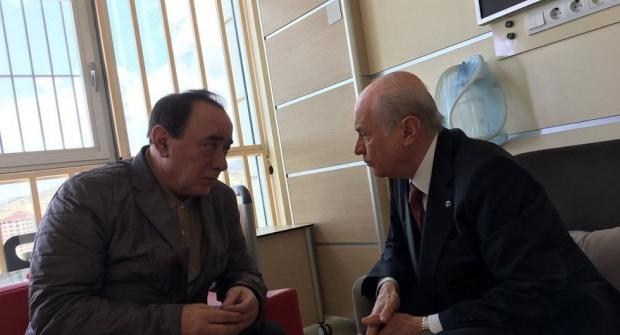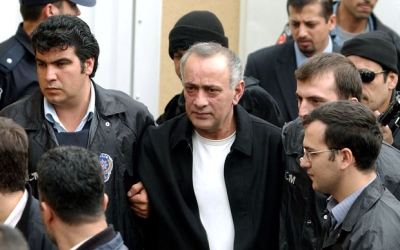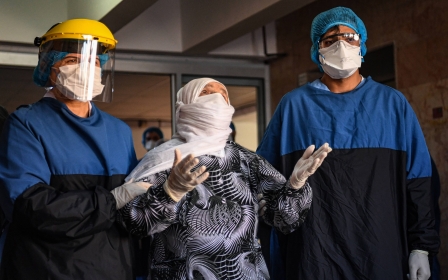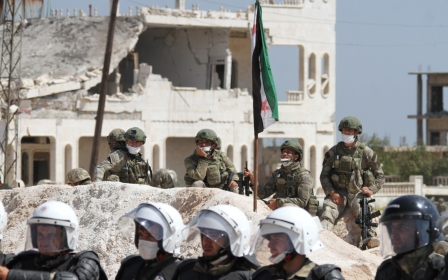Release of Turkish far-right mob boss sparks outrage from human rights activists
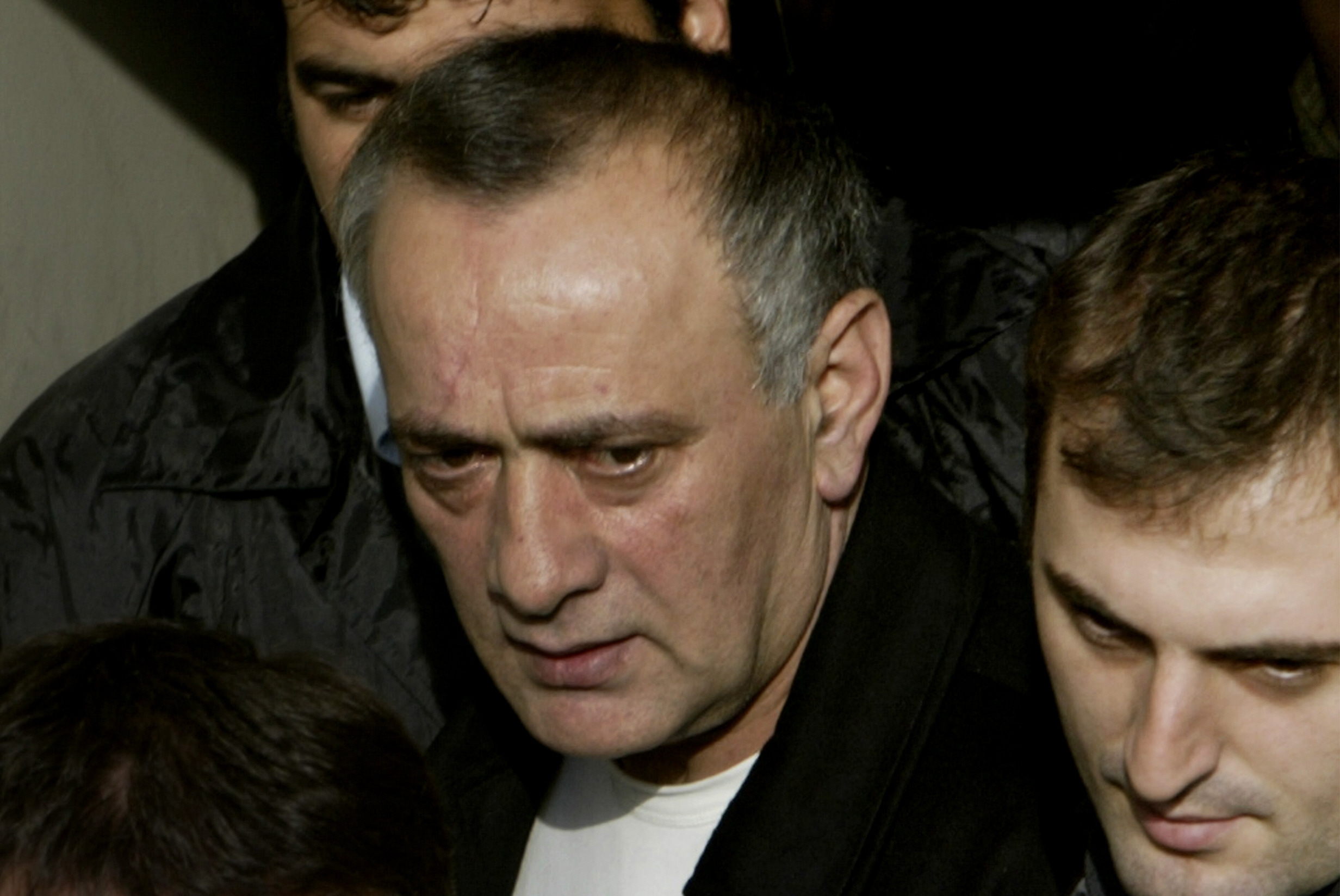
A decision by Turkey to release a notorious gangster and former intelligence services hit-man from jail as part of the government's efforts to fight the coronavirus pandemic has been widely criticised, especially as numerous political prisoners are left incarcerated.
Alaattin Cakici was released from Sincan Closed Prison on Wednesday, where he had been serving sentences for a number of crimes, including organising the murder of his ex-wife in 1995.
"My client Alaattin Cakici has been released," said his lawyer Zeynep Ciftci in a tweet late on Wednesday evening.
"He has retired to the hotel of his friend Mustafa Altınhan, a former Kirkpinar oil wrestling agha, in Saroz."
The move is part of a government plan to prevent the spread of the coronavirus pandemic in Turkish jails.
New MEE newsletter: Jerusalem Dispatch
Sign up to get the latest insights and analysis on Israel-Palestine, alongside Turkey Unpacked and other MEE newsletters
Turkey's parliament on Tuesday passed a law to allow the temporary release of tens of thousands of prisoners with the stated aim of easing overcrowding in jails and protecting detainees from the coronavirus, officially known as Covid-19. The law aimed to see the temporary release of about 45,000 prisoners.
The release of Cakici under amnesty has been a long-term political project for the far-right Nationalist Movement Party (MHP).
The MHP, who are the main political allies of Turkish President Recep Tayyip Erdogan and his ruling Justice and Development Party (AKP), consider Cakici to be a patriot and defender of the Turkish homeland.
State hitman
Apart from long being one of the most powerful mob bosses in the Turkish underworld, Cakici was a longtime member of the Grey Wolves, a far-right organisation linked to the MHP that has been accused of killing thousands of leftists and minorities since the 1960s.
Cakici was first arrested after a 1980 military coup and tried on charges of murdering 41 leftists.
However, leaked intelligence reports in the 2000s revealed that Cakici had been used in the '80s and '90s by the Turkish National Intelligence Organisation (MIT) as a hitman, targeting leftists and pro-Kurdish groups.
He was also assigned to carry out operations abroad for MIT in countries including Lebanon and Greece, targeting the Kurdistan Workers Party (PKK) and the Armenian Secret Army for the Liberation of Armenia (ASALA).
Cakici fled Turkey in 1992, but - after periods in and out of jail - was eventually extradited from Austria and convicted in 2004 on multiple sentences of murder, money laundering, and leading an illegal armed group.
He was also convicted of contracting the assassination of his ex-wife, the daughter of a former gangster rival. She was shot dead in front of their son on 20 January 1995.
Making his case for a general amnesty in 2018, MHP leader Devlet Bahceli described Cakici as "brave and fearless" and as someone "who was in love with [his] homeland and ideals".
'This state of affairs reveals how powerful Alaattin Cakici is over the state, the government, AKP and MHP'
- Turkish Human Rights Association
“How just and fair is it to leave these brothers of ours rotting behind walls?” he asked.
Still, Adil Serdar Sacan, a former police chief involved in getting Cakici locked up in the late 1990s, told MEE in 2018 that Bahceli was a hypocrite in calling for Cakici's release, as he had been part of the coalition government at the time of his arrest in 1999.
"I am a witness of Bahceli’s support for those operations against Cakici back then - as the deputy prime minister he sent me messages declaring support. Now he asks for the release of most of the mafia leaders. I don’t understand why. I cannot see how he changed his mind," he said.
“Bahceli talks about Cakici’s idealist nationalism. I think it’s wrong to link nationalism with the mafia. Those people are not in jail on political crimes. They are in jail because they commited organised crimes, killed people and so on. I find Bahceli’s stance very strange."
'Utterly discriminatory'
News of Cakici's release was greeted with outrage in some quarters.
"Alaattin Cakici is released, Selahattin Demirtas is in prison!" wrote Eren Keskin, vice-president of the Turkish Human Rights Association (IHD), referring to the imprisoned leader of the pro-Kurdish Peoples' Democracy Party (HDP).
"Here is an example of the judgement of the Turkish state."
Journalist Sebnem Arsu pointed out that "journalists who never touched a weapon remain in jail and Alaattin Cakici, that organised crime convict, walks out of prison a free man."
Emma Sinclair-Webb, Turkey director at Human Rights Watch, told Middle East Eye that the amnesty law was "utterly discriminatory" and politically biased.
"Turkey is notorious for having a justice system under tight political control and locking up government opponents and perceived critics on terrorism charges," she said.
"Among the victims are journalists, Kurdish opposition politicians, human rights defenders, and many thousands of people allegedly linked to the Fethullah Gulen movement. All of these people are unfairly excluded from the early release law."
She added that the new law excluded prisoners with acute medical conditions, as well as prisoners held on remand and not yet convicted.
In a statement sent to MEE, the IHD also described the ruling in Turkey as "discriminatory" and said it indicated how powerful Cakici was.
"Due to the obscurity of the definition of terrorism in Turkey, everyone against the political powers and all who express dissident views face terrorism charges, are sentenced and detained by the government's use of the 'Anti-Terror Code' (ATC)," said the statement.
However, they said the law was implemented in such a way "that Alaattin Cakici, a convicted organised crime leader, would be eligible for release despite the threatening letter he was reported to have written to President Erdogan in 2017."
"This state of affairs reveals how powerful Alaattin Cakici is over the state, the government, AKP and MHP."
Middle East Eye delivers independent and unrivalled coverage and analysis of the Middle East, North Africa and beyond. To learn more about republishing this content and the associated fees, please fill out this form. More about MEE can be found here.


